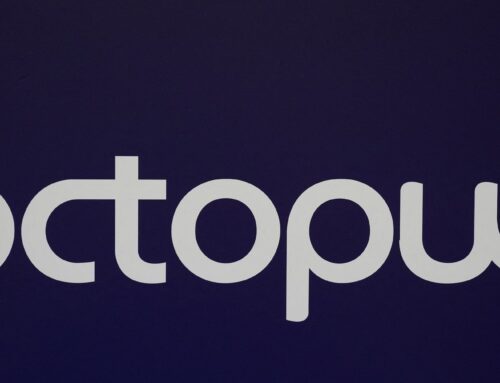Meta goes to trial to avoid a breakup
April 11, 2025
Should Meta be forced to spin-off Instagram and WhatsApp?
Should Meta be forced to spin-off Instagram and WhatsApp?


On Monday, Meta will face the Federal Trade Commission in a legal fight that could reshape the social media landscape.
Over the next two months, the US government will make its case that the company’s 2012 acquisition of Instagram and 2014 acquisition of WhatsApp squashed potential threats to its dominance. Meta, which went by the name of Facebook at the time, will defend itself by arguing that it helped grow those acquisitions into large businesses used by billions of people while facing plenty of competition along the way. The company’s senior executives, including CEO Mark Zuckerberg and former COO Sheryl Sandberg, are expected to testify during the trial in Washington, DC.
The trial itself has been a long time coming. It’s based on a lawsuit filed under the first Trump administration and then amended under the Biden administration, seeking solutions as dramatic as unwinding Meta’s big mergers. It’s the third US trial attempting to bust up Big Tech in two years, following the Justice Department’s successful case against Google’s search business and a second one pending a decision against its ad tech business. It kicks off amid a broad rethinking of how antitrust laws should apply to digital markets, which started years ago and has evolved into a bipartisan, populist movement. But what that looks like under the new Trump regime is somewhat up in the air — Trump’s FTC chair bills himself as tough on Big Tech, though a key part of his focus is web platforms’ moderation of conservative accounts.
Ahead of the trial, Meta has made efforts to cozy up to the Trump administration. Zuckerberg sat with other tech CEOs on the dais during President Donald Trump’s inauguration. Shortly after, Meta settled a lawsuit the president brought for banning his accounts after the January 6th insurrection. (Meta agreed to pay $25 million, the vast majority of which will go toward funding Trump’s presidential library.) And in his January announcement about ending Meta’s fact-checking program, Zuckerberg proclaimed that he’d “work with President Trump to push back on governments around the world” that are “pushing to censor more.”
Meanwhile, in recent weeks, Zuckerberg has personally lobbied Trump to drop the FTC lawsuit. The agency’s chair, Andrew Ferguson, recently suggested that he would obey such an order from Trump. As of now, the case is still set to go to trial on April 14th. This phase of the case will help the judge determine if Meta violated antitrust law, and if he rules against the company, there will be a separate trial to determine how to remedy alleged harms, including, possibly, breaking the company up.
The crux of the FTC’s case is the allegation that Meta illegally monopolized the market for “personal social networking services” through anticompetitive acquisitions it allegedly used to “neutralize” potential rivals. Judge James Boasberg threw out the FTC’s initial lawsuit against Facebook in mid-2021, saying that the government had not presented enough facts to plausibly demonstrate monopoly power. He also threw out a parallel complaint brought by a large coalition of states, saying they couldn’t challenge acquisitions that closed — and were cleared by the FTC — so many years ago.
But Boasberg ultimately allowed the FTC to refile an amended complaint. He deemed most of the government’s updated case strong enough to move forward, but barred some allegations about Facebook’s platform interoperability policies. Still, he warned, the FTC “may well face a tall task down the road in proving its allegations.”
Now, the trial is slated to feature testimony from a long list of prominent current and former Meta executives, including Zuckerberg, Sandberg, CTO Andrew Bosworth, CMO Alex Schultz, and CPO Chris Cox. The current and former heads of Instagram and WhatsApp are also expected to testify. In addition, the court will hear from witnesses at rival social media firms like Snap, TikTok, and Pinterest.
Rebecca Haw Allensworth, an antitrust professor at Vanderbilt Law School, thinks the FTC’s lawsuit “is one of the stronger of the tech cases that have been brought in the last five years.” The strength of the FTC’s case primarily comes from evidence of Meta’s alleged anticompetitive intent behind buying Instagram and WhatsApp, she tells The Verge.
The FTC’s amended complaint points to a 2012 message Zuckerberg wrote to his then-CFO about buying social media startups like Instagram: “The businesses are nascent but the networks are established, the brands are already meaningful and if they grow to a large scale they could be very disruptive to us.”
When then-Facebook paid $1 billion for Instagram, the photo-sharing app had only 30 million users and no revenue. Today, Instagram has billions of users and is estimated to account for more than half of Meta’s US ad revenue this year. Billions of people still use Facebook, but the social network has long struggled to attract younger users like Instagram — a problem Zuckerberg has, interestingly, said he’s particularly focused on fixing this year.
WhatsApp had 450 million users when Facebook paid a staggering $19.3 billion — the largest startup acquisition ever at the time — to buy it in 2014. Meta now makes more than $10 billion a year from ads on Facebook and Instagram that point people to chat with business accounts on WhatsApp, the app’s leader, Will Cathcart, recently told employees in an all-hands meeting heard by The Verge.
For Meta, fighting a forced spinoff of Instagram or WhatsApp is of existential importance. Instagram is the company’s most culturally relevant service by far, with millions of active creators. WhatsApp is estimated to be the most used messaging app in the world. Both apps are critical surfaces for Meta to distribute its AI assistant, which Zuckerberg sees as the next major tech battle. And though he let both apps operate independently from the rest of Meta early on, spinning them off now would be technically challenging given how deeply intertwined both apps are with the company’s broader infrastructure.
Even though Zuckerberg’s intent behind buying Instagram and WhatsApp can’t legally be a consideration for finding Meta liable for breaking antitrust law, Allensworth argues that it could serve as something of a tie-breaker should the judge feel torn between expert views of the market. Meta, on the other hand, will likely find its strongest arguments in attacking the government’s definition of the market, she says. (This defense has been a major element of every significant antitrust suit in recent years.)
The government must prove that Meta has monopoly power in a relevant market for the judge to be able to find it liable for illegally monopolizing it. The FTC’s chosen definition of “personal social networking leaves” excludes services like LinkedIn, YouTube, and even TikTok — all of which Meta argues it’s in competition with. Meta will also likely make a compelling case about the role it played in making Instagram and WhatsApp the successful apps they are today.
Still, the government has the benefit of momentum on its side. Last year, DC Judge Amit Mehta found Google to have an illegal monopoly in online search, paving the way for other adverse rulings against Big Tech. (Mehta will soon consider arguments about the appropriate remedies in that case.)
“Finding liability in these cases does put the judge out on a limb a little bit, because the norm has been for so long to defer to how companies run their business, and especially to defer in the case of Big Tech,” Allensworth says. “Once one judge goes out on that limb, it’s a little bit easier for the second judge to do it.”
Search
RECENT PRESS RELEASES
Related Post


